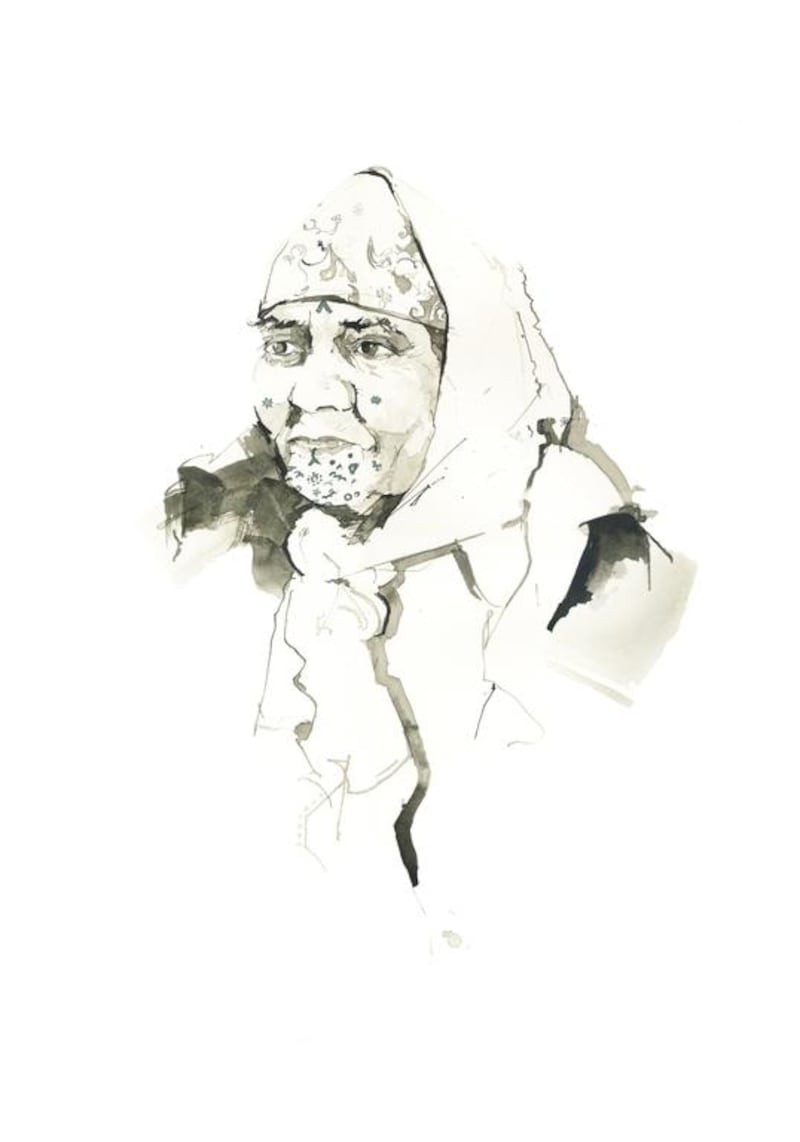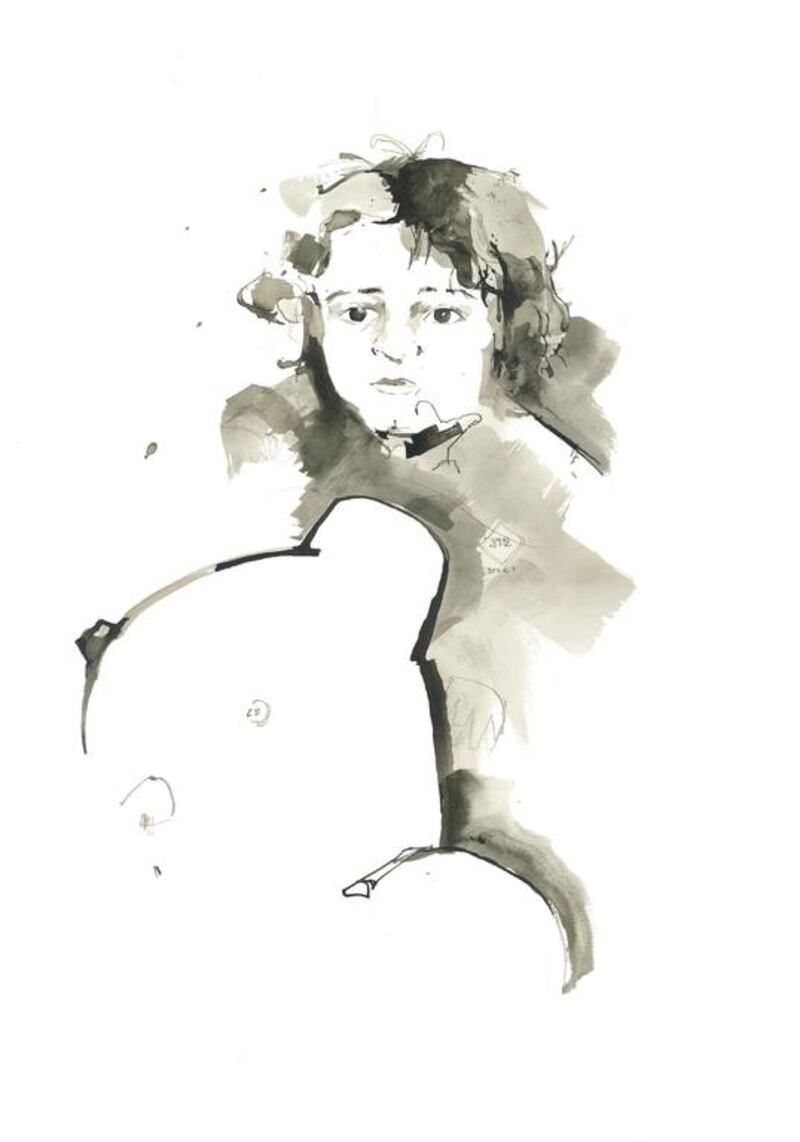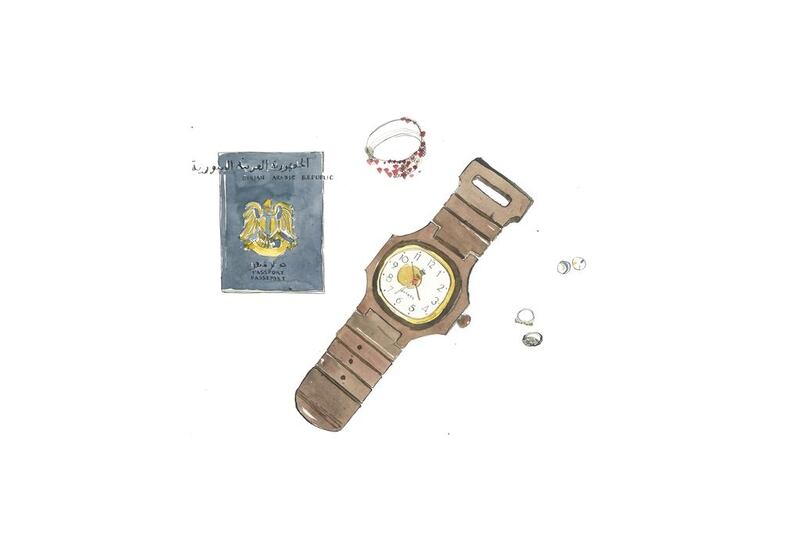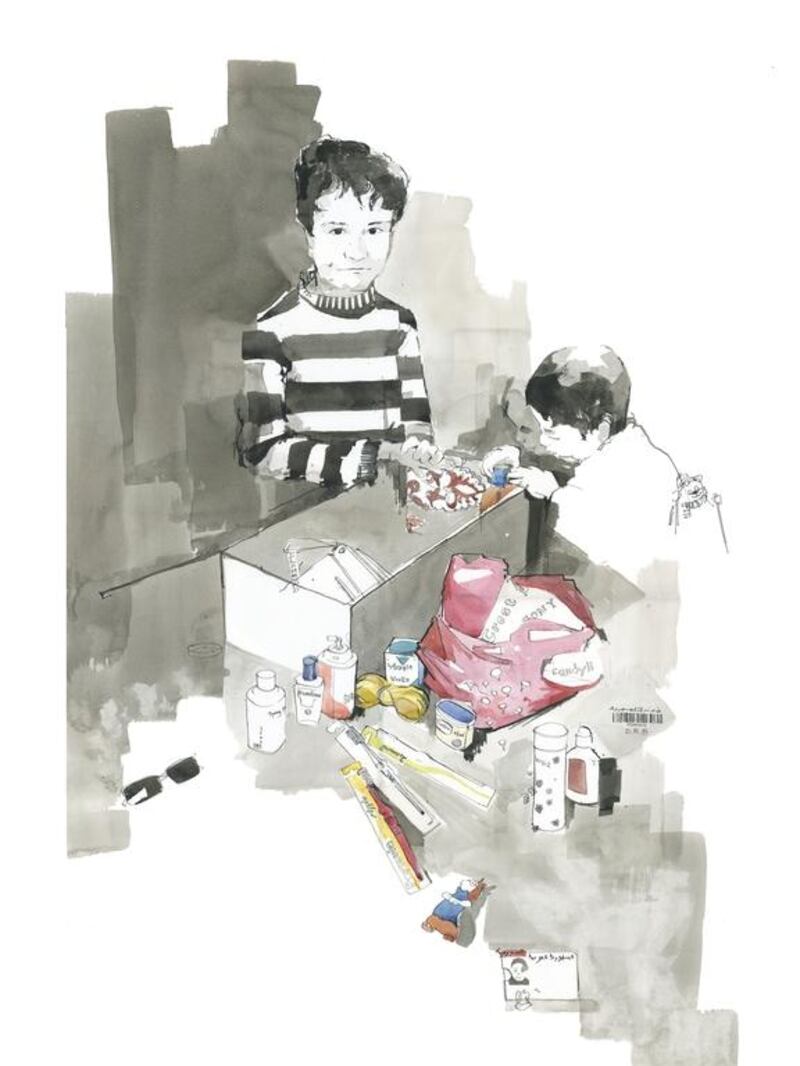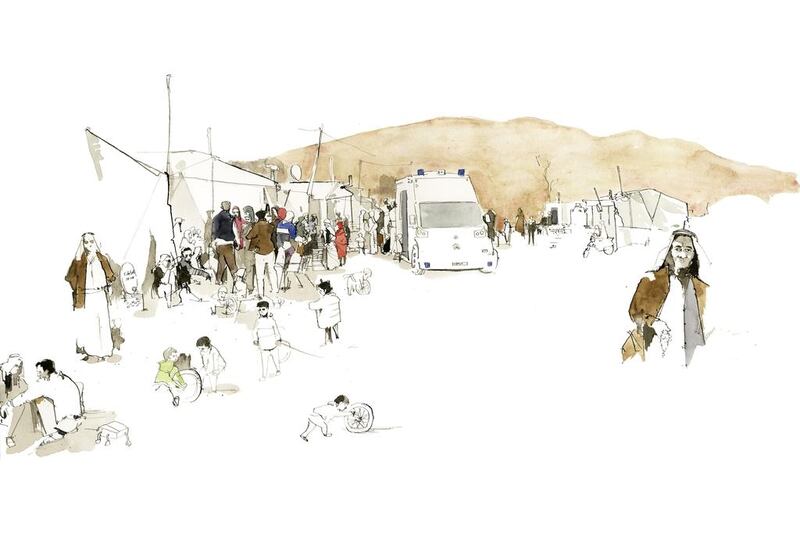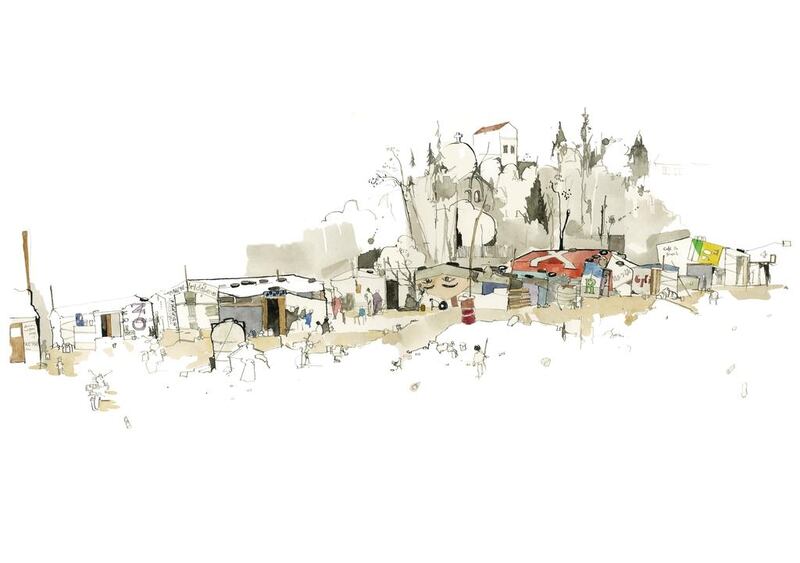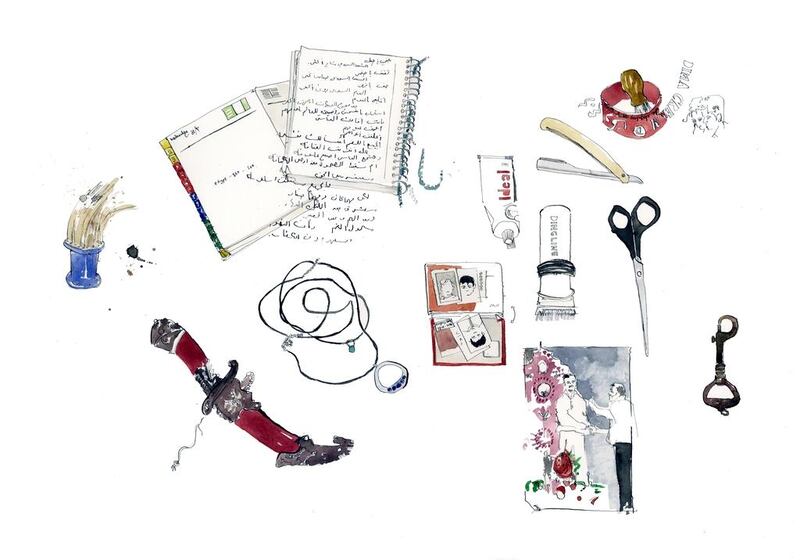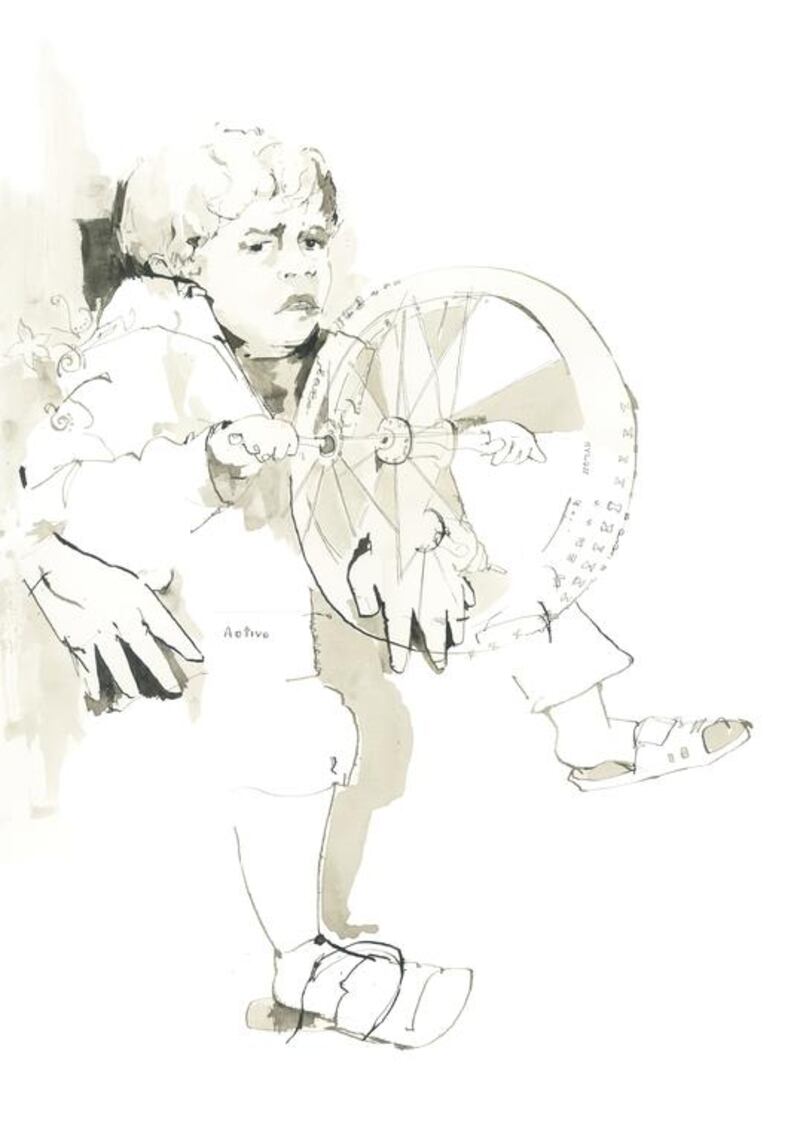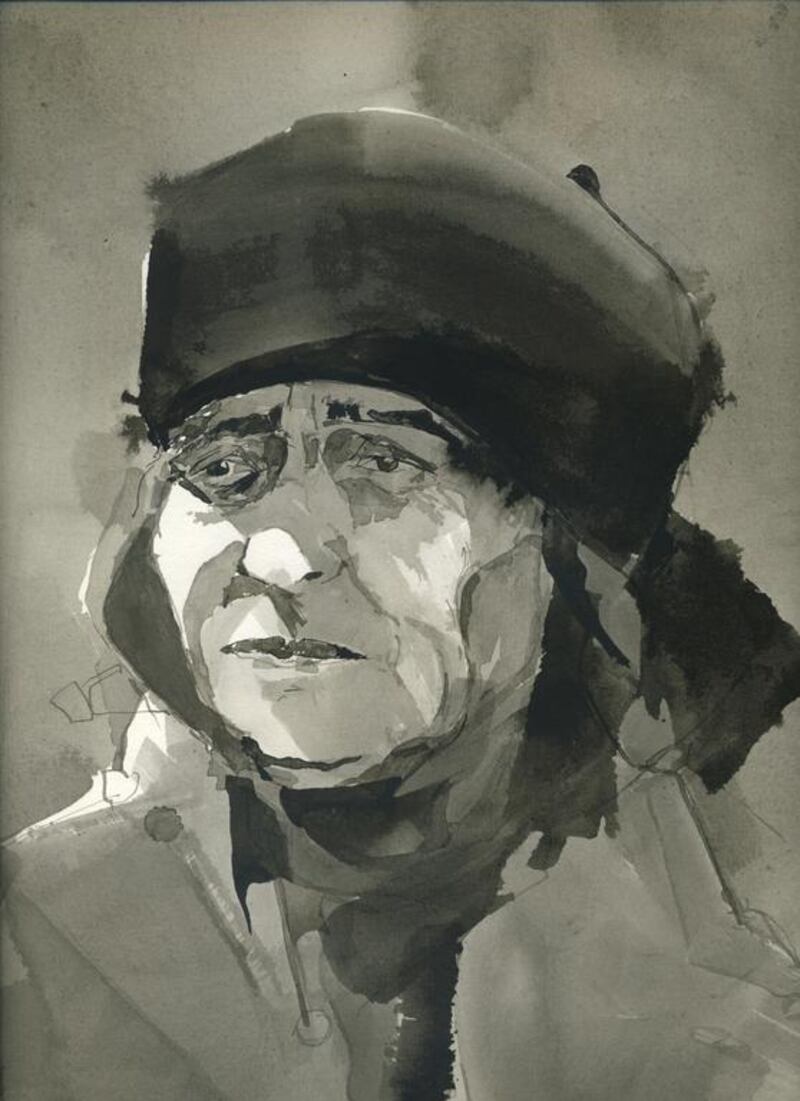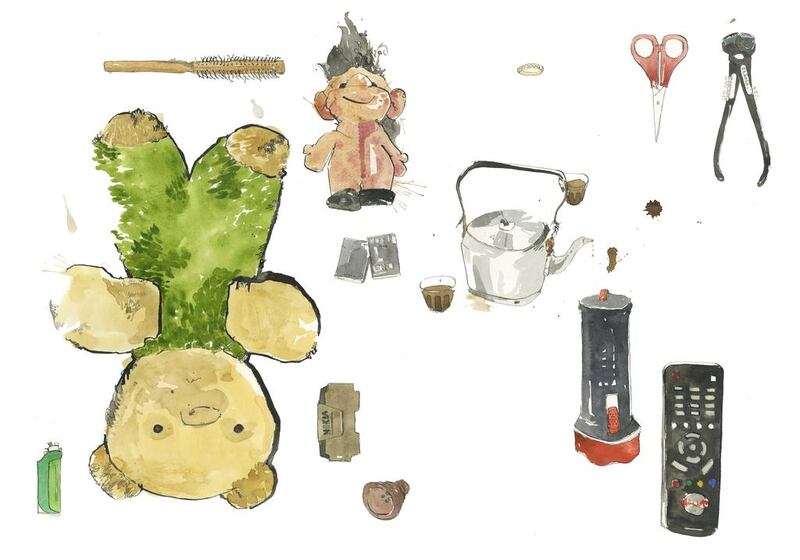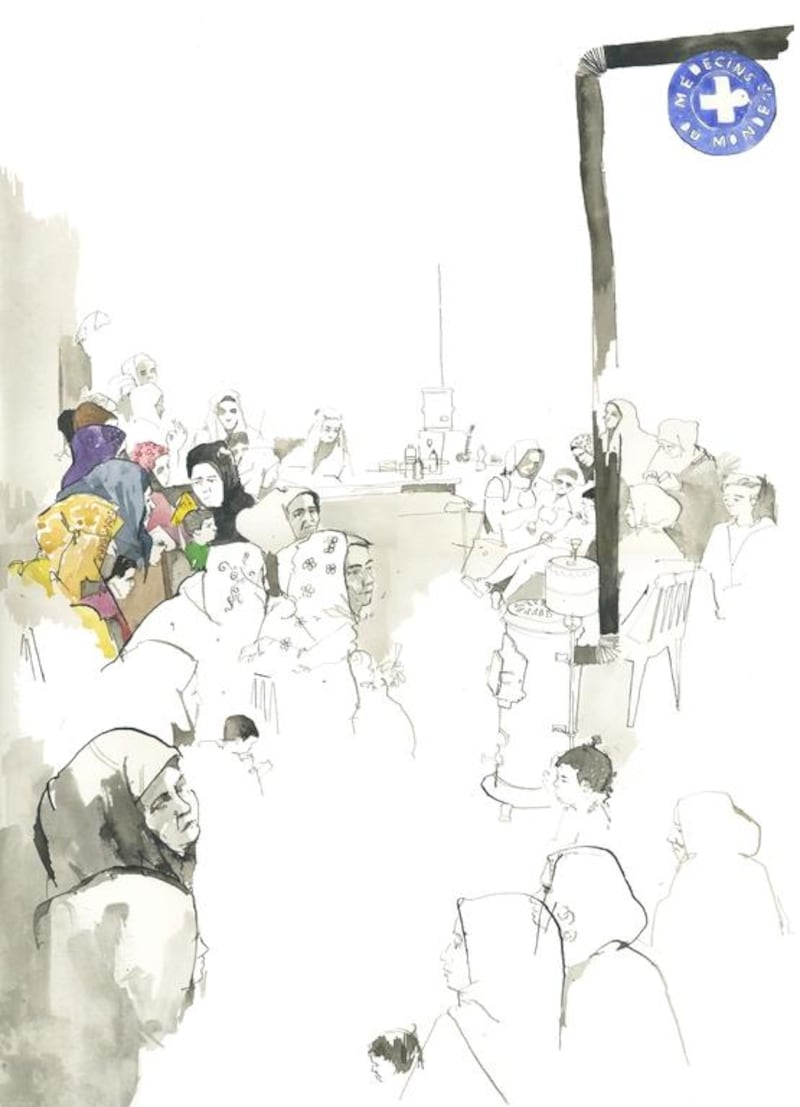By Nick Rice
BEKAA VALLEY, LEBANON // When the international humanitarian health organisation Doctors of the World wanted to illustrate the plight of Syrian refugees living in Lebanon, it chose an artist, not a photographer.
Award-winning illustrator George Butler has visited Syria twice since the civil war broke out, filing from the country's shattered cities, but this was his first time portraying the unfolding humanitarian crisis in Lebanon's camps.
Butler, in his mid-twenties, says his work offers an alternative to photography.
"Reportage illustration is rare these days," he explains. "The process of observing and interpreting a scene contributes a different angle.
"Not that it should compete with photography, but the time spent making the image is an important factor. It's open and unthreatening. The terminology of photography is aggressive - shoot, cut, manipulate. Drawing is none of these things."
Some of Butler's most poignant works show the minutiae of refugee life. He has painted the personal belongings that refugees showed him they had brought to Lebanon - items grabbed as barrel bombs destroyed towns and cities.
They are rarely practical, but imbued with a sense of home. Butler calls them "junk with no useful purpose - but junk that connected them to their previous life. Junk they could not throw away.
"The remote control for the old TV, the stopped clock still telling Syrian time, the motorbike keys for a bike stolen in Syria, a friend's telephone number, a photo of a seven-year-old son left behind so he could go to school.
"This was the reality of it. Drawing was simply a way of documenting this."
The settlements he visited are provided with primary health care by Doctors of the World. Syrian refugees are prone to a range of mental health problems and Doctors of the World has established a mental health task force.
Their records show a high incidence of mood and emotional disorders, alongside anxiety-related complaints, mainly associated with family and assets left behind or lost in Syria.
Such trauma-related symptoms are typical in torture survivors, while psychosomatic disorders and serious mental health conditions are also widespread.
More than half of Lebanon's refugees, over 520,000, are children. Hyperactive or aggressive behaviour is prevalent, as is bed-wetting.
Lebanon has absorbed the greatest number of Syrian fleeing the war, which the United Nations High Commissioner for Refugees (UNHCR) says is the highest concentration recorded anywhere in recent history.
The country is now close to having the population it was expected to reach in 2050. They make a home anywhere they can, from self-made camps to unfinished buildings and slum dwellings. With landlords liable to increase rent or evict at any moment, anxiety is constantly high.
In the town of Al Ain we met Noelle Jouan, 33, a clinical psychotherapist with Doctors of the World. Her thoughts on the growing mental health crisis are sobering.
"The deterioration of mental health in refugees will surely increase," says Ms Jouan. "On arrival to Lebanon the need was for basic mental health support, but with time the refugees are becoming more aware of the situation and their prospects.
"The separation and death of many family members weigh heavy and more help will be needed, especially for the children. They have witnessed terrible scenes."
Addressing a clinic full of refugees the challenges of providing support were apparent. One woman shouts: "What are you talking about 'mental health'? We have no health, neither physical or mental. Only this torture."
In a short time several woman had broken down in tears and the room was charged with tension. Ms Jouan remained calm and patiently listened to each outburst.
Most of those present eventually shared some of their anxieties and at the session's end there was a sense of pressure released - a valuable, if temporary, salve.
The fears confided to the mental health task force range from concerns for children and future prospects through to anxiety about sexual and physical abuse.
A significant proportion of refugees are women and young girls who are suffering from, or at risk of, sexual and gender-based violence.
It is well documented that during wars and their aftermath, rates of physical and sexual abuse rise dramatically. A pervasive, underreported and frequently unpunished crime, it can leave a traumatic legacy.
Changing the names to protect her patients, Ms Jouan described the case of Alya, 27, and her husband who were happily married with two children in Syria.
Since becoming refugees in Lebanon their marriage began to fall apart. Suffering from kidney stones and unable to work, the husband vents his frustration on his wife and children.
"Alya was referred to me because she attempted suicide with an overdose of medication. The problems started because they can't work and have no money," says Ms Jouan.
"Alya suffered a lot when she saw her children crying from hunger. The violence started because her husband had no pain relief and he'd get angry with the children just for talking or playing around him. The same for Alya. He started to express his pain by beating them.
The consultations, provided without charge by Doctors of the World, are making a difference and the violence has now ceased.
"One month ago Alya's husband suddenly came with her to the centre. He broke down with guilt during our consultation. Now I work with them together and he behaves differently with his family."
Alya's case is one glimpse of the many examples of abuse and rape the medical teams on the ground witness constantly. This suffering is compounded by a profound sense of homesickness.
Butler reflects: "Going home is the biggest, singular desire, regardless of who is in power. With passports and ID fast expiring many of the Syrian refugees feel more trapped in Lebanon than they did under the bombs of the regime or the erratic nature of the opposition."
George Butler's paintings will also be privately exhibited in June at the Victoria and Albert Museum in London.
George Butler's paintings will also be privately exhibited in June at the Victoria & Albert Museum in London. Learn more about Doctors of the World at www.doctorsoftheworld.org.uk
Illustrations of trauma of Syria civil war refugees
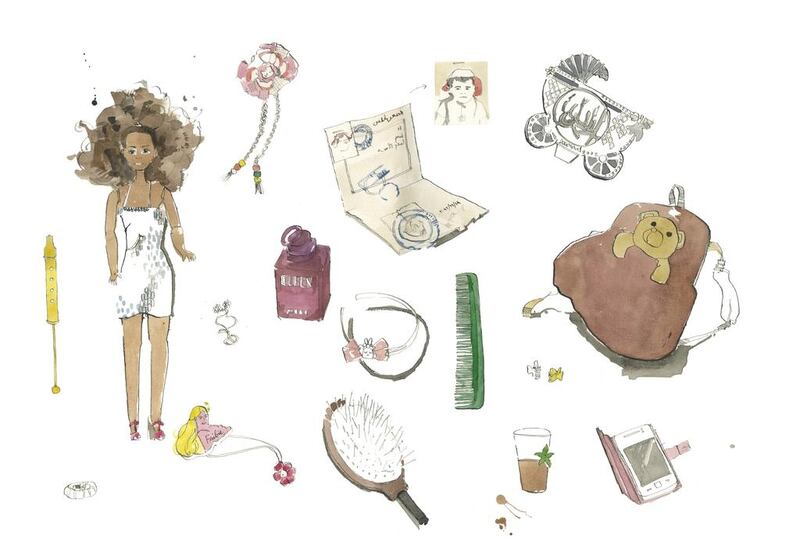
Editor's picks
More from The National
